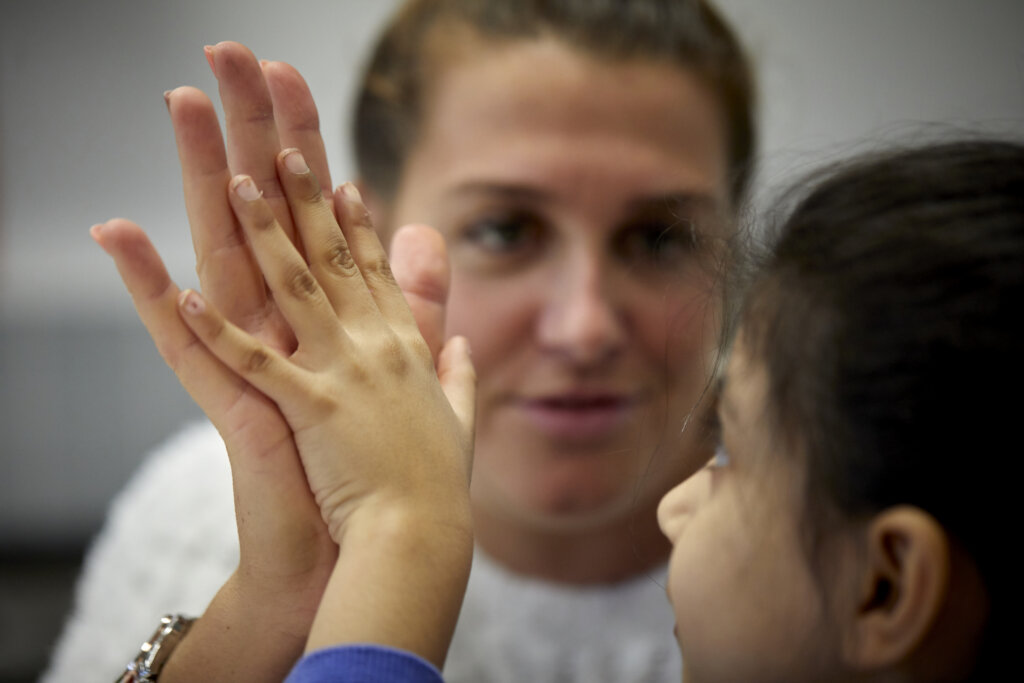Since March 2020 we have all had to live with the impact of Covid-19 and it is likely to continue to affect us all for some time yet. Despite the advances that are being made such as finding and distributing a vaccine and schools, shops etc re-opening, the country is now back within a National lockdown – with school closures. It is stated that schools are to be remained closed into the February half term, when our lockdown will next be reviewed. In the mean-time, pupils have been told to access online learning, while vulnerable children are still expected to be in school.
Covid-19 has affected children in many ways, mentally, physically, socially and emotionally, some more than others. UNICEF has stated that “for some children, the impact will be lifelong”. The chief executive at Young Minds – a mental health charity stated that throughout lockdown, “some children will have experienced or being witness to abuse, exposed to poverty, and/or lost loved ones”. While most children will have missed their peers, going to school and their day to day lifestyle and freedom.
What does research say?
School closures and restrictions throughout the year have meant that children have socialised with their peers significantly less than they normally would with school closures and social distancing in place. School closures have also changed routines for many people, which could result in a change in behaviour in some children when returning back to school.
Its arguable, that the biggest impact Covid-19 could have had on us, is on our mental health. Millions of people across the world have experienced poor mental health as a result of covid-19. Young Minds conducted a survey with teachers and school staff to find out what impact covid-19 has had on their students. 88% of respondents agree that a lack of structure and routine that school usually provides’ has had an effect on student’s wellbeing. 79% noticed a rise in anxiety in their students and 74% believed that overall school closures have created a negative impact on most of their student’s mental health.
So, this leads onto the question – When will life return to ‘normal’? the truth Is we don’t know, vaccinations are now on their way within the UK meaning that life will slowly be going back to ‘normal’. However, we’re not sure what the long-term effects of this year are going to have on our children’s health and behaviour. What we can do is prepare for the slow return of pupils to schools after half term.
How can schools offer support?
So, how can schools prepare for and support their pupils? School is often the first place that children go to seek support for their wellbeing, therefore school needs to be prepared and equipped for this. Taken from the Mental Health Foundation and NSPCC here are some tips that should ease children back into returning to school.
- To reduce levels of uncertainty and anxiety, ensure there is clear communication about the process and procedures of returning to school. Provide clear dates and instructions so that students are aware of what to expect.
- Expect and acknowledge change – don’t expect things to return as they were, it may take a while for students and staff to transition back into a more normal school routine.
- Ensure that all your staff’s safeguarding training is up to date to allow staff to recognise and respond to any safeguarding concerns – as a result of lockdown, your staff might notice more child protection concerns.
- Young people are concerned about how their education as a result of school closures, so – reassure pupils about their exams / future career and educational prospects.
- Prepare for additional support for pupils who have struggled with the curriculum whilst engaging from home and may have fallen behind.
- Identify your vulnerable pupils to be able to prepare for additional support for their wellbeing
- Facilitate support for children to express their concerns, for example have a school counsellor.
- For information on safeguarding during lockdown, please read our blog article
Want to read more?…
Signposting of Blogs:
We have produced a range of blogs that cover many issues that will have arisen especially due to covid-19, providing staff with some insight on spotting the signs and how to report and support.
Generalised Safeguarding topics/factors:
Supporting positive Mental Health throughout Covid-19:
- Supporting children’s mental health throughout lockdown
- World mental health day 2020
- Keeping children motivated during lockdown
Safeguarding Conference:
Many of the safeguarding issues children have faced this year will be covered by experts in their fields at our Safeguarding Conference in February 2021.
References:
- https://youngminds.org.uk/about-us/media-centre/press-releases/school-staff-warn-of-the-extensive-impact-of-covid-19-pandemic-on-young-people-s-mental-health-new-survey/
- https://data.unicef.org/covid-19-and-children/
- https://www.mentalhealth.org.uk/publications/impacts-lockdown-mental-health-children-and-young-people
- https://learning.nspcc.org.uk/news/2020/june/returning-to-school-after-coronavirus-lockdown#heading-top












